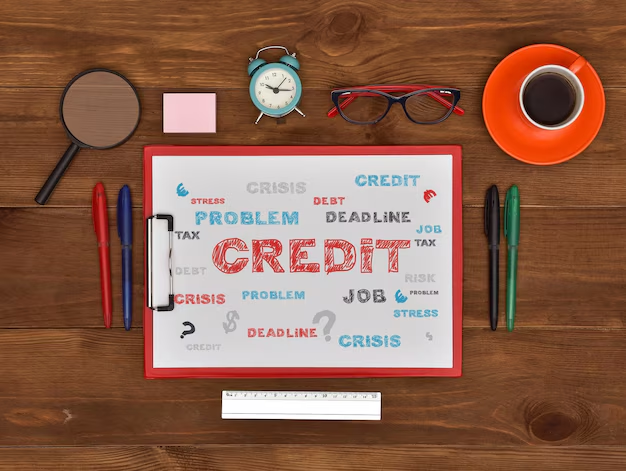A loan can be a useful tool for improving your credit history if you manage it responsibly. Your credit history plays a vital role in determining your ability to get approved for future loans, credit cards, and even renting apartments or securing a job. Using a loan effectively can help establish or rebuild your credit score over time. Here’s how you can use a loan to improve your credit history:
1. Understand How Credit Works
Before applying for a loan, it’s essential to understand the factors that affect your credit score. The key components of your credit score include:
- Payment History (35%): Whether you make timely payments on your loans and credit accounts.
- Credit Utilization (30%): How much of your available credit you’re using, especially for revolving credit like credit cards.
- Length of Credit History (15%): The age of your credit accounts.
- Types of Credit Used (10%): The mix of credit types you have, such as credit cards, mortgages, and installment loans.
- New Credit (10%): The number of new credit inquiries or accounts you open.
A loan, when used properly, can positively impact these factors, especially if you consistently make on-time payments.
2. Choose the Right Type of Loan
When choosing a loan to help improve your credit history, it’s important to consider your needs and current credit standing. Here are some types of loans that can help:
- Secured Loans: If you have a low credit score or no credit history, a secured loan (such as an auto loan or a secured credit card) can be a good option. These loans require collateral, reducing the risk for lenders. By making consistent, on-time payments, you can improve your credit score.
- Unsecured Personal Loans: If you have a good credit score, an unsecured loan may be available. These loans don’t require collateral and often have better terms, but making regular payments can still help improve your credit score.
- Credit Builder Loans: Some financial institutions offer credit-builder loans, which are designed specifically to help you build or rebuild credit. The lender holds the loan amount in a savings account while you make monthly payments. Once you’ve repaid the loan, you can access the funds.
3. Make Timely Payments
The most crucial aspect of using a loan to improve your credit history is ensuring that you make timely payments. Your payment history has the most significant impact on your credit score. Here’s how making timely payments helps:
- Positive Payment History: Every on-time payment you make on your loan is reported to the credit bureaus, helping to create a positive payment history. This will improve your credit score over time.
- Avoid Late Payments: Late payments can have a severe negative impact on your credit score. Set up reminders or automate payments to ensure you never miss a due date.
- Pay More Than the Minimum: If possible, pay more than the minimum payment required. This can help reduce the amount of interest you pay over time and demonstrate to creditors that you are financially responsible.
4. Keep Your Credit Utilization Low
If you take out a revolving credit loan, like a credit card, it’s important to keep your credit utilization ratio low (ideally below 30%). This means not maxing out your credit limit and only using a portion of your available credit. By maintaining low utilization, you signal to creditors that you are using credit responsibly, which can boost your credit score.
5. Maintain a Positive Loan-to-Debt Ratio

Your overall debt load, in relation to your income and other financial obligations, can affect your credit score. To improve your credit history, consider:
- Avoid Taking on Too Much Debt: Taking out loans that you can’t afford to repay can hurt your credit score. Be cautious about how much debt you’re accumulating, and ensure that you can handle monthly repayments.
- Pay Down Existing Debt: If you have other loans or credit card debt, focus on paying them down while maintaining good standing with your new loan. Reducing your overall debt will positively impact your credit score.
6. Avoid Opening Too Many Loans or Credit Accounts
While having different types of credit can improve your score, opening too many new loans or credit accounts in a short period can negatively affect your credit. Each application for credit results in a hard inquiry, which can lower your credit score temporarily. Instead of applying for multiple loans, focus on making responsible payments on the loan you’ve already taken.
7. Monitor Your Credit Report
Regularly reviewing your credit report is essential when working to improve your credit history. By monitoring your credit, you can ensure that your loan payments are being reported accurately, and you can dispute any errors. Checking your credit report also helps you understand how your loan is affecting your credit score.
You are entitled to one free credit report per year from each of the three major credit bureaus: Equifax, Experian, and TransUnion. You can request your free reports at AnnualCreditReport.com.
8. Consider Refinancing or Consolidation (If Applicable)
If you have existing loans and have improved your credit score since taking them out, you may qualify for better loan terms, such as lower interest rates or better repayment terms. Refinancing or consolidating loans can help reduce your monthly payments, making it easier to stay current on your obligations and maintain a positive credit history.
Conclusion
Using a loan to improve your credit history is possible, but it requires careful management. The key to success is to make timely payments, keep your credit utilization low, and avoid taking on excessive debt. Whether you choose a secured loan, unsecured personal loan, or credit-builder loan, managing your loan responsibly can have a significant impact on your credit score over time. Monitoring your credit and staying financially disciplined will help ensure that you not only improve your credit history but also build a strong foundation for your financial future.
FAQs
1. How does a loan help improve my credit score?
A loan can help improve your credit score by establishing a positive payment history, demonstrating responsible credit use, and reducing your credit utilization ratio.
2. Will taking out a loan hurt my credit?
Taking out a loan may cause a temporary dip in your credit score due to the hard inquiry. However, if you make on-time payments and manage your debt responsibly, it can improve your score in the long run.
3. Can a credit-builder loan improve my credit score?
Yes, a credit-builder loan is specifically designed to help individuals build or rebuild their credit. Making timely payments on this loan will help improve your credit history.
4. How can I avoid missing a loan payment?
Set up automatic payments or reminders to ensure you never miss a due date. Additionally, paying more than the minimum amount due can help you stay ahead of your loan balance.
5. Should I take out a loan if I already have bad credit?
If you have bad credit, taking out a secured loan or a credit-builder loan can be a good way to start rebuilding your credit. Just be sure to manage the loan responsibly to avoid further damage to your credit score.


